15 incredibly impressive students at MIT
Beckett Colson is exploring underwater robotics using 3D printing.

Connor Duffy won two major hackathons.
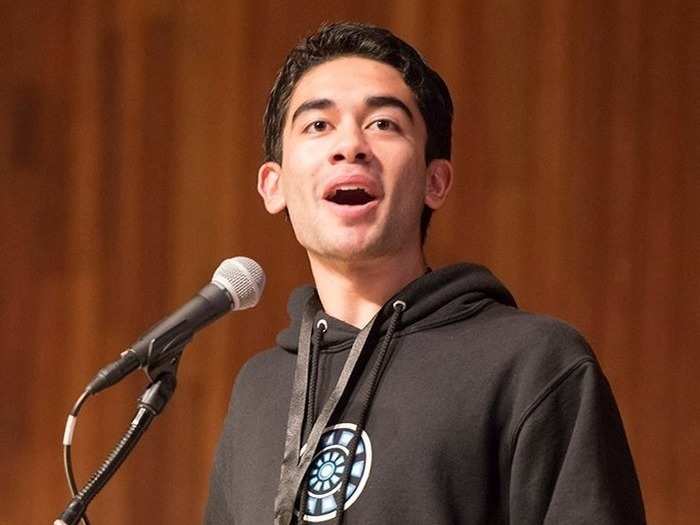
Class of 2017
Third-year computer science and molecular biology major Connor Duffy has made his mark all over the world. He’s negotiated million-dollar contracts with Bitcoin mining hardware startups in San Francisco, discussed the future of artificial intelligence on TV in Japan, and worked in labs in Singapore, Bangalore, and the US.
Back at school, he won two hackathons: HackMIT, where he took home the grand prize for developing a web application that manages urgent emails, and the Stanford-MIT Blockchain Hackathon, where he proposed a protocol to record property deed transactions on the Bitcoin blockchain — the currency's transaction database.
Duffy also founded MIT’s Science Olympiad, which runs team-based science competitions for high school students across the country. MIT’s Olympiad attracts over 1,500 students and is one of the most competitive ones in the country.
Eventually, Duffy wants to work in venture capital, where he can help support entrepreneurs who have ideas on how to change the world.
Daniel Parker is an award-winning pianist.
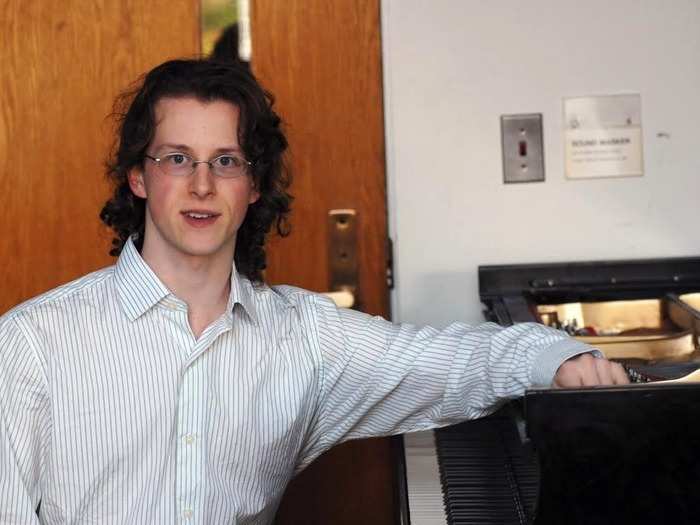
Class of 2016
Daniel Parker is a music major at MIT and a two-time winner of the prestigious Emerson Fellowship, which has enabled him to study under world-renowned Bach specialist Sergey Schepkin. In December 2014, he performed the entire Book I of Bach's Well-Tempered Clavier at MIT's Killian Hall, a feat even for professional concert pianists.
This past summer, Parker honed his skills at the elite Solo Piano program at the Aspen Music Festival and School where he trained with world-class faculty in studio sessions and masterclasses. Before returning to MIT to begin this semester, Parker won third place in the Thousand Islands International Piano Competition.
When he's not practicing piano, Parker has spent time as a Zen student at a monastery in San Francisco, where he plans to return for an extended stay. He's also the founder of a peer education and violence prevention group at MIT. Post-graduation, Parker will complete a master's degree in piano performance at the Carnegie Mellon University School of Music.
Dheevesh Arulmani plans to revolutionize the energy industry.
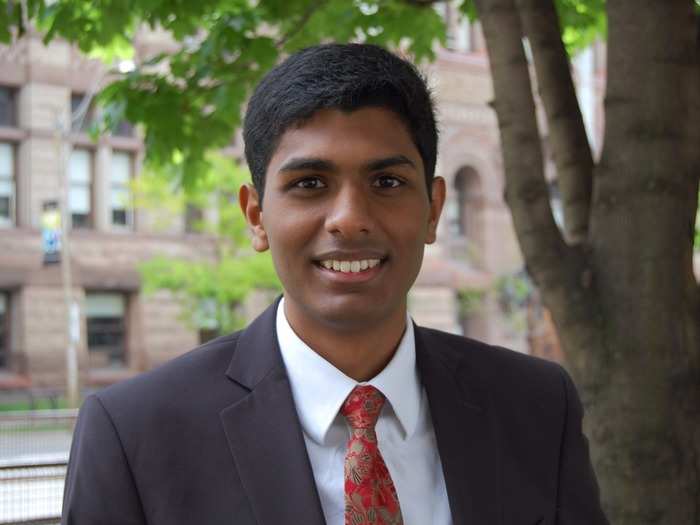
Class of 2017
Dheevesh Arulmani is passionate about energy — and it shows. The junior chemical engineering and economics major and native Canadian works with MIT’s Group Sadoway on the development of “liquid metal batteries,” which use three layers of liquid electrodes floating on top of each other, reducing costs and potentially allowing the batteries to last longer. Arulmani will co-author two patents on this technology, which will be used by energy storage startup Ambri.
His work has also garnered several recognitions outside of MIT. Arulmani was named one of Canada’s Top 20 Under 20, one of MacLean’s Future Leaders Under 25, and received a Google International Award to the tune of $10,000 for his research on bio-sensitive fuel cells.
Ultimately, Arulmani aims to become an entrepreneur in the energy sector, working to create more sustainable energy systems and storage solutions.
“I am very passionate about integrating my engineering and innovation skills with my business intuition to commercialize a product that has the potential to revolutionize the energy industry,” he says.
Guillermo Webster helped build an app that lets users edit and remix any video.
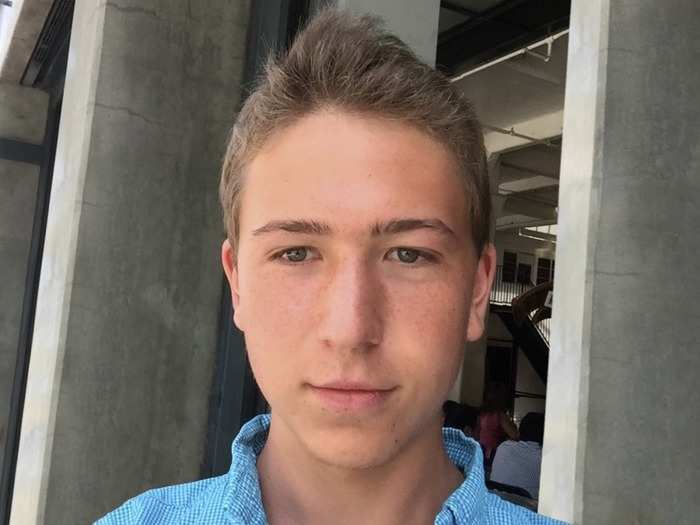
Class of 2017
Since his sophomore year, Guillermo Webster has been the CPO of mobile video company Snakt. The app operates similarly to Vine, but allows users to include and remix content from anyone else’s videos; Snakt takes care of the attribution and revenue-sharing aspects. Webster, now a third-year computer science major, registered three patents for the app that allow creating, remixing, and watching videos to be a seamless experience.
Together with classmate Kevin Kwok, Webster also helped create Project Naptha, a Google chrome extension that allows users to add and edit text on photos. When the pair released it publicly, it gained over 200,000 users within its first week.
After graduation next spring, Webster hopes to continue building tools that help people interact with digital objects on a deeper level, whether that means staying at Snakt or starting a new company altogether.
Izzy Lloyd started the "Tell Me About Your Day" campaign to help create a support system among undergraduate students.
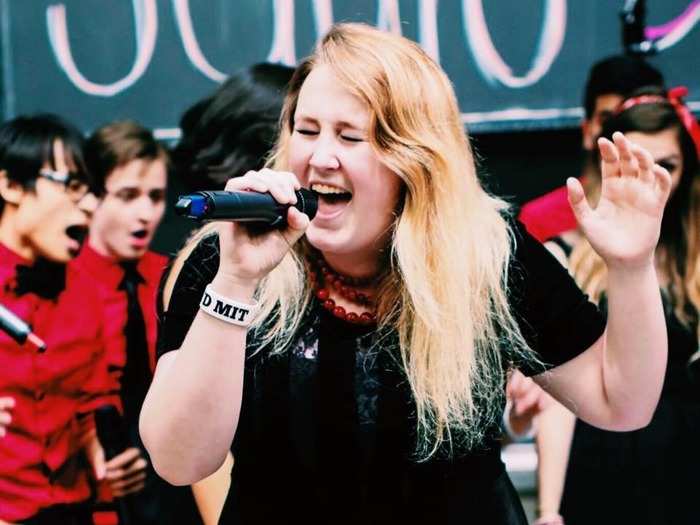
Class of 2018
“Tell me about your day.” It’s a simple inquiry that can have a profound impact on someone’s day — or life. No one knows this better than sophomore Izzy Lloyd, who started the “Tell Me About Your Day” campaign last year as a way to create a support network among MIT’s undergraduate population following the deaths of two freshmen.
“Too often we wait until tragedy strikes to really express to those around us how much we care,” Lloyd says. “I want to create a hard-to-ignore reminder — large black and white wristbands — for everyone to take just a few minutes out of every day to check in with the people around them.”
As the movement grew, Lloyd raised over $10,000 through crowdfunding and grants, spent hours distributing wristbands to MIT undergrads, and was interviewed on NPR. Her efforts worked and word spread: Over 30 other schools across the US are interested in bringing TMAYD to their campuses.
Lloyd doesn’t yet know where she’ll end up after college, but one thing’s for sure: She wants to help people.
Kevin Kwok built a program that makes it possible to edit and transform text on photos.
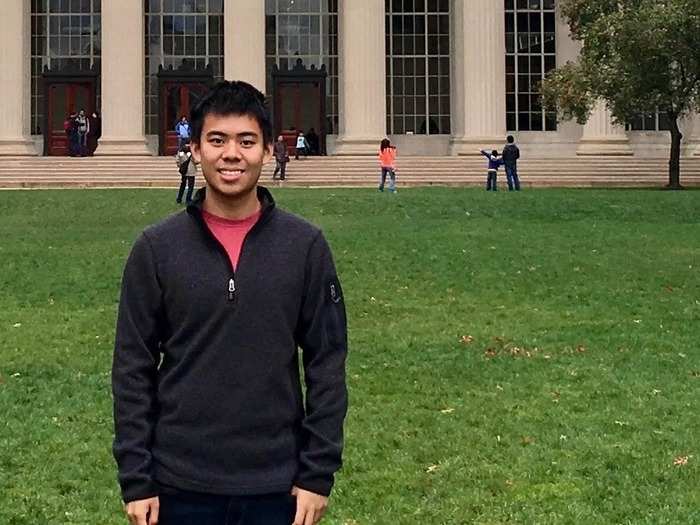
Class of 2017
Building things has always come naturally to Kevin Kwok. The junior electrical engineering and computer science major started programming browser extensions and building computer programs back in high school, an interest that carried over to his time at MIT.
As a freshman, Kwok took second place at HackMIT, a 24-hour hackathon that attracts students from all over the world, with a browser extension that allows users to highlight and copy text within ordinary pictures on websites. However, he didn’t stop there — Kwok and classmate Guillermo Webster continued building out the extension, adding features that could erase and edit text on photos, read text out loud, and translate it into foreign languages. The pair released the extension publicly as Project Naptha, garnering over 200,000 users the first week.
Kwok continues to dig into other projects — including a bed with a pressure sensor that serves as an alarm clock and a gesture pad that recognizes pen strokes and acts as a keyboard — and with a year left at MIT, he’s currently experimenting with building a note-taking interface that captures the relationships between people, institutions, and objects and turns them into a computable graph.
Margaret Guo is inspiring more women to pursue careers in STEM.
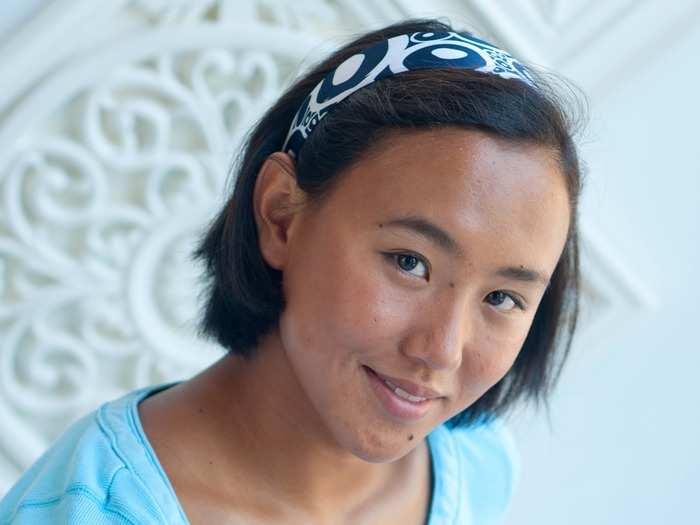
Class of 2016
Senior Margaret Guo doesn’t just study electrical engineering, computer science, and biological engineering, she also finds time to conduct research, swim competitively, and encourage more women to pursue careers in science and engineering.
As the president of MIT’s chapter of the Society of Women Engineers, Guo develops initiatives to increase the representation of women in STEM (science, technology, engineering, and mathematics), both inside and outside of MIT. Under Guo’s leadership, SWE’s membership increased by 15%, and the club has inspired younger girls to take an interest through outreach initiatives and community-wide events that promote gender equality within STEM.
Guo currently has two patents pending, both of which focus on using algorithms to improve the quality of patient care. The patents come as result of research on campus under two MIT professors, as well as work completed during an internship at medical technology company Medtronic last summer.
Post-grad, she hopes to become a physician-scientist, helping to solve critical healthcare problems through a combination of patient care, clinical research, and entrepreneurial ventures.
Nalini Singh organized MIT's first ever hackathon for high school students.
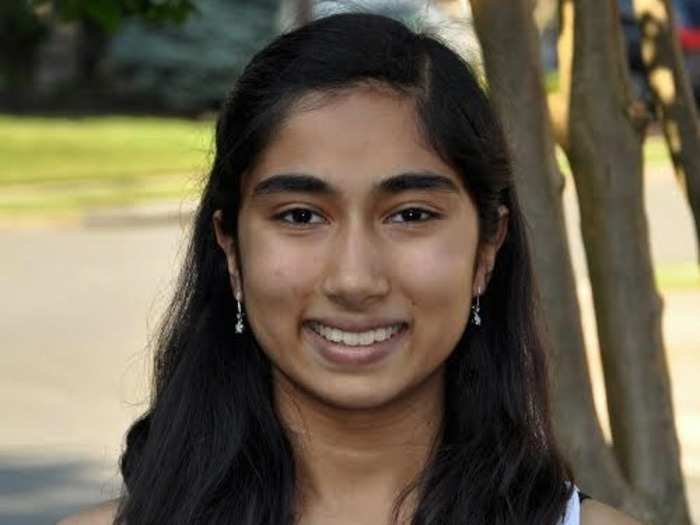
Class of 2017
As a freshman at MIT, Nalini Singh led the organization, outreach efforts, and launch of Blueprint, the school's first-ever hackathon for high school students that was attended by nearly 300 people its first year.
Singh, an electrical engineering and computer science major, conceived the idea for the event because she wanted to expose young students to software development, an opportunity she said she didn't have before attending MIT.
For the past two years, Singh has also worked in the Biomechatronics Group at MIT's Media Lab under highly accomplished MIT professor Hugh Herr. She's contributed to two projects in prosthetics: She wrote software for an automated imaging system that quantifies skin strain, and she developed control systems for test prostheses for animal experiment subjects. Singh also interned at Draper Laboratory, where she developed and implemented computer vision algorithms.
Nathan Varady is a wide receiver on "the smartest football team on the planet."
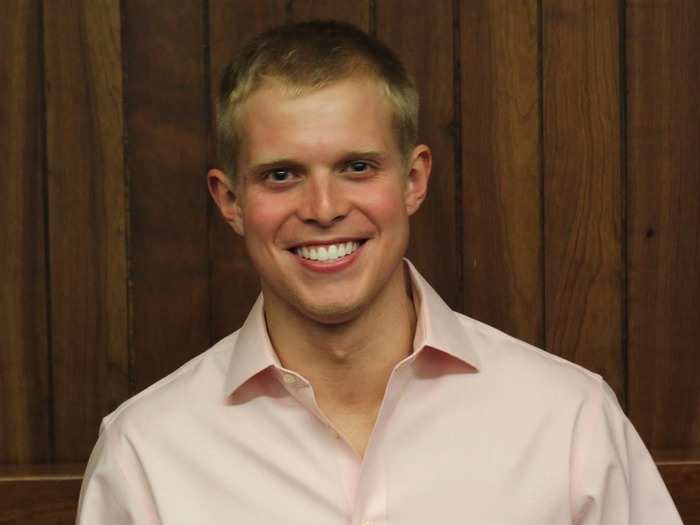
Class of 2016
Mechanical engineering major Nathan Varady is an aspiring orthopaedic surgeon and the first author of a manuscript that will appear in the 2015 issue of "Osteoarthritis and Cartilage."
Varady is passionate about one day eliminating total joint arthroplasties as the standard care for osteoarthritis, a type of arthritis characterized as "wear and tear." In partnership with a physician, he's also in the early stages of a startup that he believes could revolutionize the orthopaedic splint industry.
When he's not coauthoring talks and presentations or working on drug delivery for osteoarthritis, Varady is a wide receiver and team captain of MIT's football team, the MIT Engineers — Fox Sports Live says they're the smartest football team on the planet. Last year, he helped lead the team to its first conference championship. Varady is a semi-finalist for the National Football Foundation's William V. Campbell Trophy, which recognizes the best football scholar-athlete in the country. Fifteen finalists will receive an $18,000 post-graduate scholarship at the end of this month.
Nikhil Buduma was chosen by Greylock Partners for a rising tech stars program.
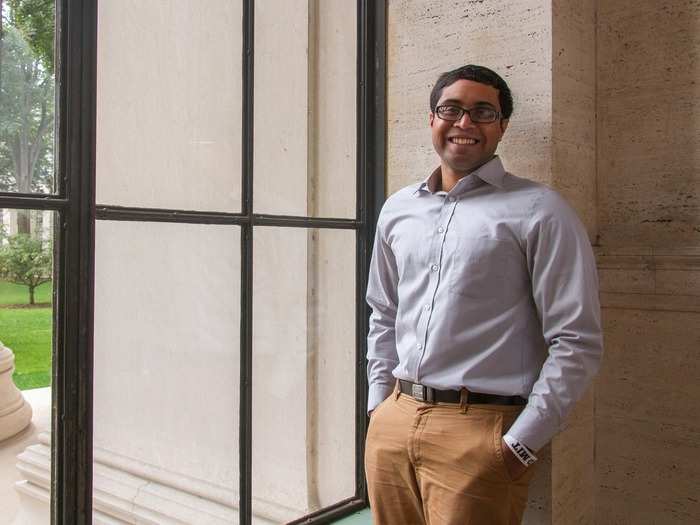
Class of 2017
Before starting at MIT, Nikhil Buduma worked as a research scientist in the drug discovery lab at San Jose State University while attending a nearby high school. As a two-time gold medalist at the International Biology Olympiad, Buduma entered MIT as a biology major but soon found computer science a much more challenging and fascinating course to pursue.
Now a third-year computer science student, Buduma is on track to graduate in 2017 with both a bachelor's and a master's degree. This past summer he was selected to participate in the first cohort of the Greylock X program, a crash-course for rising tech entrepreneurs with personal mentorships from VCs Reid Hoffman and John Lilly.
Buduma is also the chief architect of Lean On Me, an anonymous texting-based support network at MIT for students struggling with mental health issues. Buduma and his team hope to make enough of an impact to expand the program to other college campuses.
Robert Mahari is connecting entrepreneurs, educators, and lawyers from all over the world.
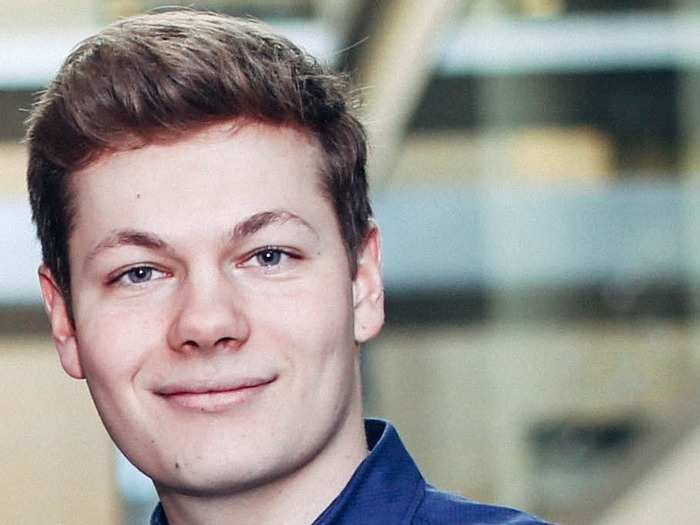
Class of 2017
One of the first things junior Robert Mahari noticed about MIT was the entrepreneurial spirit that permeates campus. He has sought to expand that culture globally ever since, with a focus specifically on "innopreneurship" — a word he coined that refers to the intersection of innovation and entrepreneurship.
His goal is to help American entrepreneurs benefit from foreign markets and to give entrepreneurs abroad the ability to benefit from US know-how. In addition to writing in journals and speaking at conferences, he works with administrators at MIT — as well as from institutions in Poland, Switzerland, Isreal, and Japan — to cultivate innopreneurship worldwide.
A native of Switzerland, the chemical engineering and management double major also works alongside senior managers for the Swiss branch of the Boston Consulting Group — a continuation of his summer as a visiting associate — to bring more US talent to Switzerland. Oh, and he’s also fluent in four languages: English, German, Polish, and French.
After finishing his degrees at MIT, Mahari plans to return to Europe to study law, hopefully finding a way to merge his interests in engineering, management, and justice.
Sophia Liu is vice president of the Undergraduate Association.
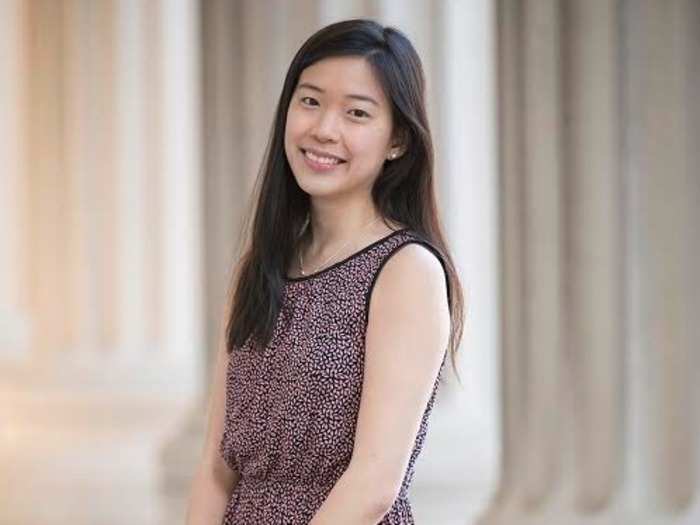
Class of 2017
Sophia Liu, a double major in chemical-biological engineering and biology, has worked in MIT's Langer Laboratory and Jensen Lab since the beginning of her freshman year. She has contributed to the labs' research and development of immunotherapeutic applications, which were recognized as one of 10 world-changing ideas by Scientific American in 2014. Liu's personal academic research is also in immunotherapy, where she has progressed to testing with tumor models in mice.
During her internship at Genentech, a leading biotechnology company in the Bay Area, Liu won the firm's intern competition after presenting to senior leaders an idea for a dementia diagnostic device.
Liu also serves as vice president of MIT's Undergraduate Association — the first Asian-American female to serve in this position at the school in at least 20 years. She manages more than 15 committees from student support to wellness and sustainability. At her post, Liu restructured the organization, dealt with its budget deficit, and advocated for a raise in minimum wage on campus.
William Jack started a committee that helps any student become an entrepreneur.
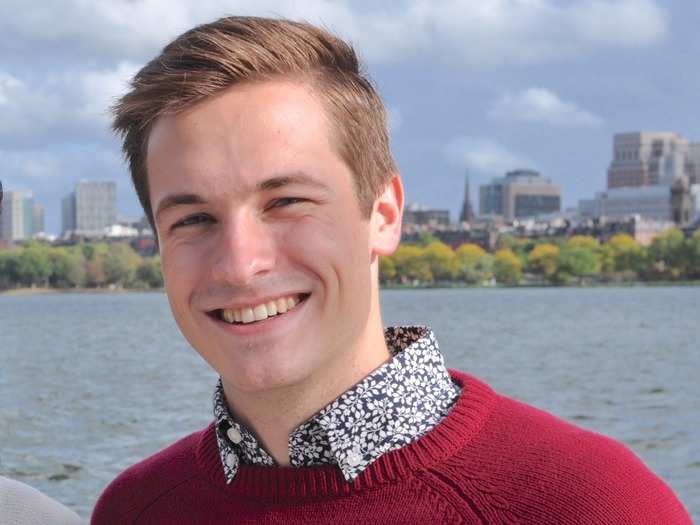
Class of 2017
Junior physics major Will Jack loves to build things — and help others build things as well. He founded the MIT Undergraduate Association’s innovation committee, which acts as a central hub for supporting undergraduates who undertake their own entrepreneurial ventures, and he helped create MakeMIT, a hackathon that focuses on hardware development. The first of its kind, MakeMIT is now in its third year and has enabled hundreds of students to build projects and share ideas.
Outside of MIT, Jack also works as an associate at VC firm Alsop Louie Partners, where he invests in and advises startups in the Boston area.
This past summer, he interned at SpaceX, where he did hands-on research and development for the company's new satellite communication systems. After MIT, Jack plans to apply what he learned as an intern as he and a few friends start their own company, which will focus on developing general artificial intelligence. “I firmly believe that AI’s development will better people’s lives,” he says. “I’m going ‘all in’ on this idea.”
Yasyf Mohamedali has his hands in two startups.
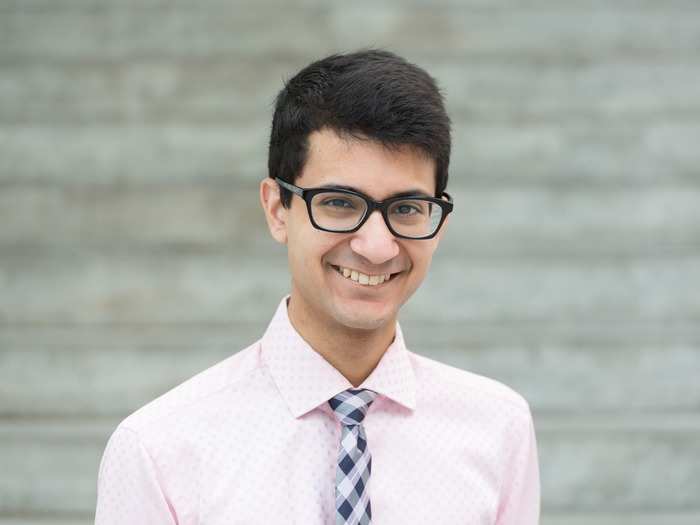
Class of 2017
Not only is junior computer science major Yasyf Mohamedali a full-time student, he’s also working on two startups and a host of personal projects. Last summer, Mohamedali joined founders Doug and Patrick Coughran at Foxtrot, a startup that helps execute deliveries for companies of all sizes. Over the last year, Mohamedali helped architect, engineer, and build the company from scratch.
He also built and solely maintains MIT Textbooks, a search engine for college classes and marketplace for textbooks used by half of MIT’s undergraduates as well as tens of thousands externally each month. The site allows students to search, plan, and schedule classes, and it integrates with MIT registration services, Google calendar, and Amazon.
In his free time, Mohamedali participates in hackathons, where he's developed a way to control your computer by text message or phone call as well as a service that turns emails into physical letters. Though he’s not sure exactly where he’ll head after MIT, he wants to walk the line between entrepreneurship and engineering, ideally working at a startup.
Popular Right Now
Advertisement